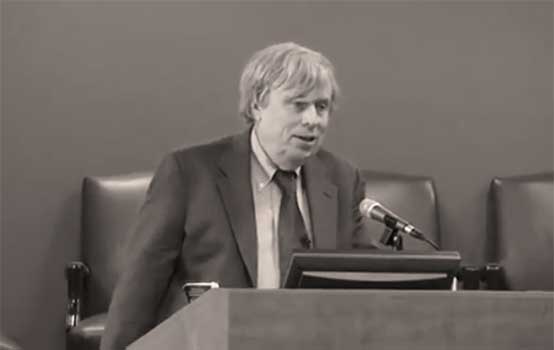A Man Who ‘Stuck With Virtue’

This week brought the news that Peter Augustine Lawler died. His death is not only a devastating loss to intellectual conservatism. It is also a blow to real liberal education, which Lawler defined as “knowing who we are and what we are supposed to do as rational, relational, and responsible men and women.” Although he was a brilliant expositor of arguments and reader of books, it was not in seminars or lectures but in his life that Lawler made the greatest contribution to this kind of education. He knew who he was and what he was supposed to do. By living in light of this knowledge, he taught us how to do the same.
I did not know Lawler as well as some others who have responded to his death. I met him about ten years ago at an Intercollegiate Studies Institute summer program for graduate students. At the time, I was in something of a contrarian phase. Despite or because of my frequent and intemperate outbursts at the conference table, Lawler took an interest in me—chatting over drinks, telling me what I should read, and treating my ideas with much greater seriousness than they deserved. He made me feel as if I belonged at the grownups’ table I so longed to join.
I don’t know if Lawler realized how much his attention and encouragement meant to me. I do know that many others tell stories of his kindness and generosity to those with no particular reason to expect it. In the 18th century, the virtue Lawler displayed in these situations would have been described as condescension. This didn’t mean arrogance or contempt. Quite the contrary, it designated an aptitude in those of high rank for conducting themselves gracefully in relationships with the lowly.
Some time after the ISI program, Lawler encouraged me to become a contributor to the Postmodern Conservative blog. Although our paths did not often cross in person, his emails and posts were an important part of my intellectual life. Lawler had a rare ability to write almost exactly as he spoke. Reading his work, one could almost hear his signature drawl.
Looking back, I recognize Lawler’s distinctively informal, discursive literary voice as a kind of philosophical argument. It was his way of reminding us claims or concepts are always articulated by specific, embodied individuals. In an academic discipline obsessed with quantitative abstraction and a democratic society inclined toward what Tocqueville called “general ideas,” Lawler insisted that we can never escape the personal and particular. That was part of the meaning of one of his favorite aphorisms: that we are “stuck with virtue.”
The last year offered an extraordinary opportunity to work more closely with Lawler. When he took over as editor of Modern Age, he invited me to serve as literary editor. Our brief collaboration was both a privilege and a pleasure. The most recent issue, the first Lawler put together, is the best the journal has published in many years.
Lawler ironically advised young people to do their part to save Social Security by taking up smoking. I like to think he would have been amused if he had known he wouldn’t join the cohort of senior citizens drawing more from public coffers than they paid in. Part of understanding who we are, Lawler argued against the transhumanist aspiration of overcoming mortality, is accepting that we will die. But perhaps one might say of death what Lawler’s namesake said of chastity: Lord, not yet.
Jewish tradition uses the word “tzadik” to designate exceptionally righteous persons. Although he would probably have rejected the title, I know few to whom it could be applied with greater justice than to Peter Lawler. To me and many others, he was a teacher, a mentor, a colleague, and friend. May the memory of this righteous man be a blessing to all.
Samuel Goldman is an assistant professor political science at the George Washington University, executive director of the Loeb Institute for Religious Freedom, and literary editor of Modern Age.
Comments